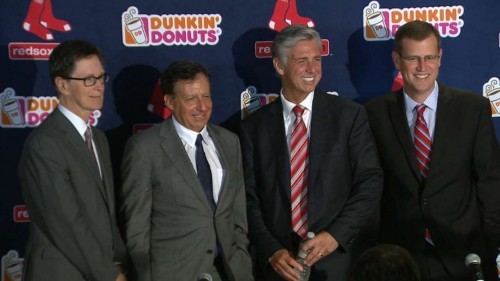The major league baseball season ended Sunday, and now it’s on to the playoffs. While the players capture the most attention, the key figures in getting the teams to the postseason are their general managers.
On Sunday, Timothy Britton of the Providence Journal wrote a richly detailed piece about the climb to the top by David Dombrowski, the new general manager of the Boston Red Sox.
It’s a primer for any sports or business reporter who wants to understand the motivations of baseball general managers. This kind of story is useful not just for those who cover major league teams, but people who follow minor league baseball, or even just sports in general.
Dombrowski, as Britton writes, decided in college that he wanted to run a major league baseball team someday.
While a student at Western Michigan University in the 1970s, he wrote a senior year independent study paper on the history of general managers in major league baseball. He called it, “The General Manager: The Man in the Middle.”
Britton got a look at the paper, and reported that it was divided into eight sections: The Beginning of the Position, Today’s Title, Famous General Managers, The Start toward Big Business, Evolution and Progress, The Player Movement, Today’s Role and The Future.
Wrote Britton, “What Dombrowski heard from contemporary executives in the late 1970s has informed his own philosophy years later, and the paper stands as a captivating snapshot of both a role and an individual mind in development.”
We’ve written about the changing nature of the general manager’s job in baseball. Very few players now fill those roles; now, GMs tend to be strategists like Dombrowski.
Talking about the paper with Britton, Dombrowski revealed that he has already begun planning where he wants the Red Sox to be five years from now.
Said Dombrowski: “You’re always thinking you want to win now, but you don’t want to get caught where all of a sudden one day you wake up and your payroll is a $100 million more than you can afford because of the club you put together or you’re null and void of talent in certain ways.”
Take time to read Britton’s story, and think about the sports executives in your market. Whose career might be particularly compelling?
Can your local sports executives offer some insight on their decision making? And, can they point you to good resources so you can understand how business decisions are made?
You also might check out our How To Cover Money podcast, where we have two episodes with advice on covering sports and money.











